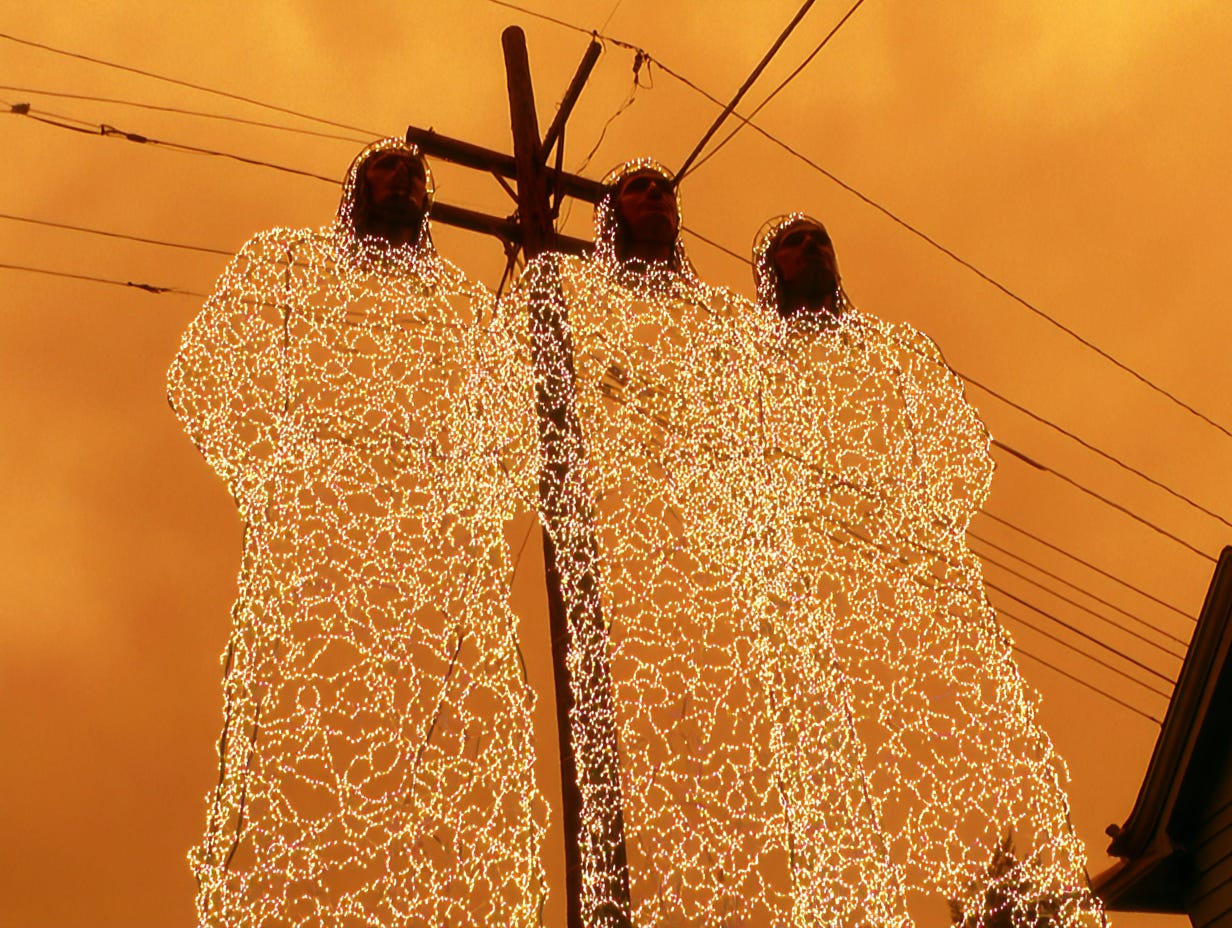Stop Asking What It Means: Why Art Doesn’t Owe You an Explanation
I had someone recently ask me what one of my songs “meant,” and not in a gentle, curious way. More in the interrogation lamp in my eyes kind of way. The tone was basically:
“Tell me the full meaning, or I’ll assume it’s something that I don’t agree with.”
It reminded me how often people treat art — music, paintings, photos, poems — like it’s a code they’re supposed to crack. As if every artist secretly has a Da Vinci decoder ring in their sock drawer and we’re all just being difficult by not handing it over.
Sometimes, sure, the meaning is obvious.
A guy standing in the rain, smoking a cigarette on the shoulder of the road, is probably about a guy standing in the rain smoking a cigarette. Not exactly Mulholland Drive over here.
But real art, the kind that hums under your skin, doesn’t work like that. It isn’t a riddle box. It isn’t a puzzle. It’s not a math equation with one correct answer waiting for someone to shout it in class.
And that’s where David Lynch quietly drifts into the room like a dream you only half-remember.
David Lynch and the Sacredness of Not Knowing
Lynch, bless him, spent decades politely refusing to explain anything. People begged him to decode Eraserhead, Twin Peaks, Mulholland Drive. And he’s just there, smiling like a man who knows the truth but also knows telling you would kill the entire point.
One of his best lines on the subject is basically a manifesto:
“I never really say what my films are about for me, because the films should stand on their own. ... So people are allowed to invent their own conclusions.”
He’s right. Art doesn’t need footnotes. It doesn’t need a tour guide.
And this one always gets me:
“When you finish anything, people want you to then talk about it... A film or a painting — each thing is its own sort of language and it’s not right to try to say the same thing in words.”
That was Lynch at his finest. Polite, firm, and offering zero rope.
Translation: Feel whatever you want. That’s your business, not mine.
Why Are We So Afraid of Mystery?
Somewhere along the way, we became a culture terrified of not knowing or maybe even, being deceived. Everything has to be explained, summarized, diagrammed, and broken into bullet points.
Mystery has become suspicious.
Ambiguity is treated like a design flaw.
If a song lyric isn’t spelled out in a caption, someone will DM you:
“What’s this about?”
We’ve become allergic to simply feeling something.
Abstract art? “What does it mean?”
Poetry? “Explain the metaphor so I can stop thinking about it.”
A weird photo? “Who cut you?”
And While We’re at It, Musicians Don’t Owe You a Technical Breakdown
This obsession with explanation doesn’t stop at the meaning.
These days people also want the entire production manual.
“Which plug-ins did you use?”
“Real amp or sim?”
“What’s modern technology vs. traditional human?”
“Did you quantize this? Re-amp it? Layer stems? Run it through some mystical spectral freezer plug-in in a basement?”
Some folks won’t even listen until they know the snare sound’s origin story.
It’s like the craft has become more important than the creation.
Meaning Lives in the Work, Not the Explanation
This is where Jackson Pollock walks in with his paint-splattered cigarette and drops the hammer:
“The painting has a life of its own. I try to let it come through.”
Meaning isn’t always crafted, it’s discovered.
And it isn’t discovered alone.
Meaning Isn’t a Fixed Object — It’s a Collaboration
This is the part most people forget:
The moment you release a piece of art, it stops being yours alone.
A song becomes a memory for someone else.
A painting becomes the way they interpret their grief.
A poem becomes the line they underline during a breakup.
Meaning is created between the artist and the audience.
If you over-explain it, you rob the audience of their part in the process.
Explanation can flatten.
Labels can limit.
Mystery allows breathing room.
When Meaning Does Matter
Of course, there are times when context matters.
If your art deals with politics, faith, trauma, identity; sure, some guidance helps keep people from running off cliffs with bad assumptions.
But even then, meanings multiply.
They shift.
They evolve with the viewer.
There’s no final answer key.
So What Does My Art Mean?
It means whatever it awakens in you.
Your memories.
Your losses.
Your hopes.
Your unresolved fears.
Your faith or your doubts.
Your late-night questions.
Your dreams that don’t make sense but stay with you anyway.
That’s the real meaning.
The living meaning.
Art doesn’t need an explanation.
Art is the explanation.




Great write-up on interpreting the meaning of art (or letting go of a possible inability to interpret it at all). I like the part where you talked about how once art is out there, it becomes part of other people's stories (and possibly their art), as well.
Honestly, thinking about and "figuring out" art (movies, music, paintings, etc.) is half the fun of partaking in it at all. I always learn something about myself in the process, as well as wind up inspired to go make more art of my own.